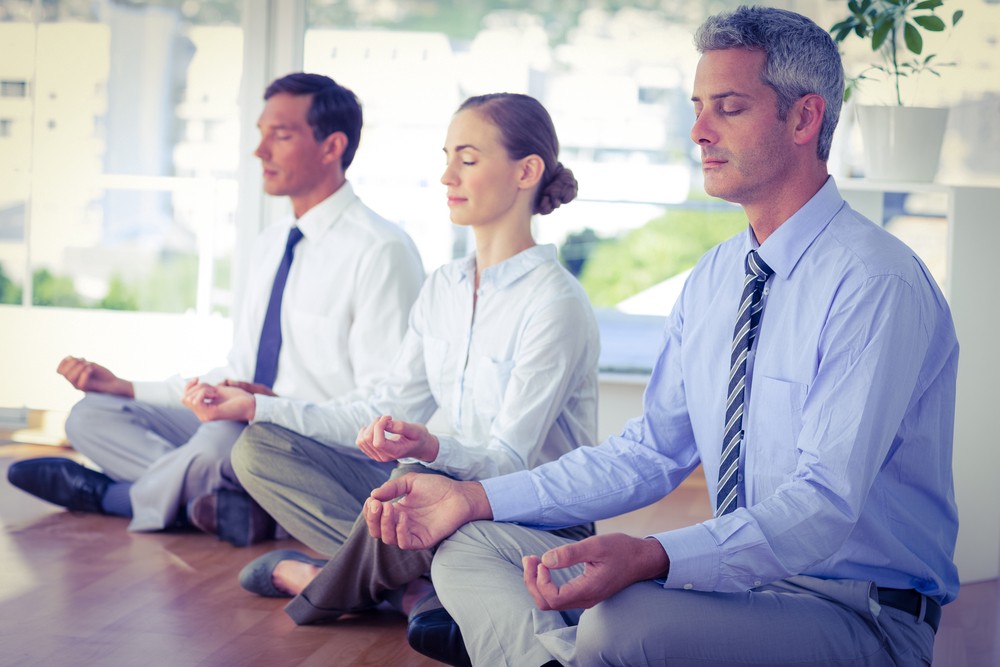Using meditation and alternative methods.
Without warning, your life has forever changed. You didn’t plan for it, you didn’t see it coming but here you are: Alone. Life has brought you to a place of uncertainty and fear. An unknown future lies ahead. Maybe it feels like you’re standing still while the world is spinning around you. A once-promising future in a marriage that you never thought would fail to a person you couldn’t have imagined ever living without. Maybe your whole life feels out of control. How do you get a handle on it? Where do go from here?
Traditional psychotherapy is often where people start. You talk through your feelings, you are taught to examine your past and look for clues as to how you’ve been shaped by your experiences. What has your response been to previous trauma? How have you handled extreme stress in the past? What coping mechanisms have worked for you? For some, food is a way to comfort and calm their emotions while others are too upset to eat. Many times, in dealing with difficult emotions, we develop destructive habits. We drink too much, sleep too much or not enough; we remove ourselves from social situations and become isolated. Previously healthy practices such as exercise are non-existent because we are too tired to leave the house. These inclinations can lead to depression and have negative impacts on our health and well being.
Chances are, if you have been through a divorce, some or all of this rings true for you. I know it did for me. As a health and fitness professional, I never thought the day would come where I lacked the motivation to get out of bed. Fully aware of the importance of nutrition, days passed before I realized I hadn’t had a meal. As someone who hardly missed a workout, I didn’t have the energy to walk my dog. I was caught in the trap of destructive behavior despite my predilection toward wellness. I knew I had to try something different. A friend suggested I see her Shaman.
What?
I wasn’t even sure knew what that meant and I was very skeptical. Finally feeling the desire to seek out alternatives to the countless self-help books, divorce guides and therapists, I booked an appointment for a “Shamanic Journey.” What came next was an experience unlike any other. I was fascinated.
The way I understand Shamanism, its most important function is healing. According to Shamanicjourney.com, “Shamanism is the path to knowledge which is gained through experience of many aspects of life, such as rituals, ceremonies, prayer and meditation, trials and tests. It’s the practice, or discipline of interconnectedness and unlimited potential; which can create a total transformation of self.” This is not a religion or even a belief system but a way of looking at the world through eyes of indigenous people of many different cultures around the world. You may be wondering how this helps someone who is going through a divorce.
As with any life transition, you often have a desire for connectedness. You feel alone, you struggle to make sense out of “why” this happened “to” you. Shamanism helps you to understand that there is higher power working FOR you and the events of your life have been set forth to guide you on the path you were meant to travel. Instead of viewing your divorce as a tragic end to your life, you can begin to see it as a beginning to living your purpose. Shamanism is the about being connected with nature, understanding that we are earth-based, which is then used for balance, health, relationships as well as success in all that is that we do.
It has taken me a long time (and I’m not fully there yet) to embrace this idea and believe in the possibility that it is true. In the beginning, I was searching for anything that would give me hope and heal my heart. I was cynical but tried to remain open. Today, I attend weekly sessions with my Shaman, monthly healing circles in NYC and have traveled to many beautiful places for spiritual yoga retreats.
Meditation has also become part of my daily practice. Whether it’s 10, 20 or 30 minutes, I take time to quiet my mind, sit peacefully and listen to a guided meditation. It was not a natural tendency for me as I am used to a faster pace, filling my time “doing” things — not wasting it doing nothing. Meditating is far from doing nothing. I won’t liken it to running a marathon or taking a spin class, but what it looks like from the outside is quite different from what you might expect. Meditation is more than just a way to calm our thoughts and lower stress levels: our brain processes more thoughts and feelings during meditation than when you are simply relaxing, a coalition of researchers has found. “The study indicates that non-directive meditation allows for more room to process memories and emotions than during concentrated meditation,” says a co-author of a study by the Norwegian University of Science and Technology.
Mindfulness has become a buzzword lately as a way to cultivate health and wellbeing. What exactly does it mean to be mindful and can it be learned? To be mindful is to have a moment to moment awareness of your thoughts, feelings and emotions without judgement. For some this comes more naturally than it does for others. When you practice meditation, it has been proven that you can learn to become mindful. Findings from a recent study have shown that meditation not only improves emotional health but that people can acquire these benefits regardless of their “natural ability” to be mindful.
Learning to cope in the aftermath of divorce using these types of alternative methods can offer hope in what seems like a hopeless situation.
Originally published at medium.com


